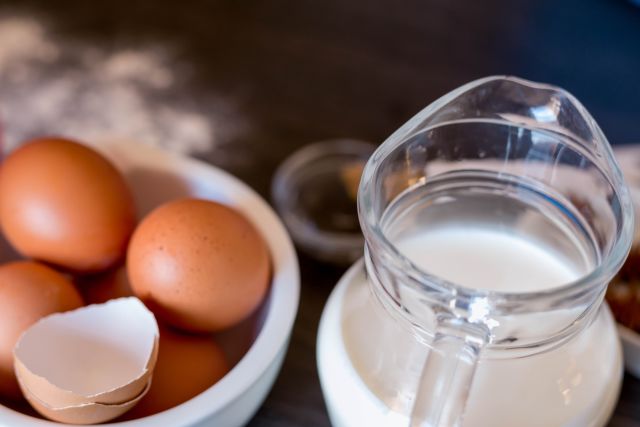Updated on March 31, 2022.
B vitamins are important to keep your brain healthy. Getting enough to avoid deficiency may help to prevent some types of brain issues.
“Vitamins (and minerals too) are substances in food that are essential to the normal growth, development, and functioning of the body,” says pharmacist Stacy Wiegman. Here’s how two key B vitamins help protect your brain.
Vitamin B12
Vitamin B12 helps make red blood cells, helps the body use fats and protein, and helps promote proper brain and nervous system function. Among people aged 60 or older in the United States and United Kingdom, about 6 percent have a B12 deficiency. (The percentages are much higher in developing countries such as India).
Vegans and strict vegetarians of all ages are at increased risk of a B12 deficiency, because this vitamin is found in animal-derived foods. People who have had bariatric surgery are also at higher risk for B12 deficiency. The same goes for people who are on certain medications, such as proton pump inhibitors (used to decrease acid in the stomach) over the long term.
“B12 deficiency causes several problems in the brain and nervous system, including numbness and tingling. If it gets really bad you can get see degeneration of [parts of the brain],” says Keith Roach, MD, associate professor in clinical medicine in the division of general medicine at Weill Cornell Medical College and New York Presbyterian Hospital.
Deficiency in this key vitamin has also been linked to Alzheimer’s disease and stroke. On the other hand, there can be such a thing as too much. Taking megadoses of vitamin B12 isn’t recommended.
Most people’s diets have enough B12 to prevent a deficiency. The best food sources of B12 include clams, beef, fish, and dairy products. But for those at risk of a B12 deficiency—particularly older adults—Dr. Roach recommends taking a multivitamin.
Vitamin B9
Another important B vitamin is B9, more commonly known as folate or folic acid. Evidence increasingly suggests that folate, along with other B vitamins, is essential for brain health. Low levels have been linked to dementia, for instance—although B9 supplements haven’t been proven to prevent dementia. The science is still ongoing.
As with vitamin B12, people who have had bariatric surgery are at risk for low folate levels. Alcoholism and genetic variants can also raise the risk of deficiency. And the developing fetus needs a lot of folate, particularly early on. People who are pregnant or planning to get pregnant are therefore often advised to take a supplement, which helps lower the risk of birth defects of the fetal brain and spinal cord, including spina bifida.
Folate isn’t toxic, but the daily recommended amount tops out at 1,000 micrograms a day for an interesting reason: Taking higher amounts than that can hide the signs of a vitamin B12 deficiency. The result, if the B12 problem isn’t spotted and fixed, can be gradual but irreversible brain damage.
Thanks to mandatory fortification of enriched breads, flour, pasta, cereals, and other grain products, most people in the U.S. get plenty of folic acid in their diets. Other good sources include dark, leafy greens, beets, Brussels sprouts, asparagus, whole grains, kidney and white beans, peanuts, avocado, and orange juice.






